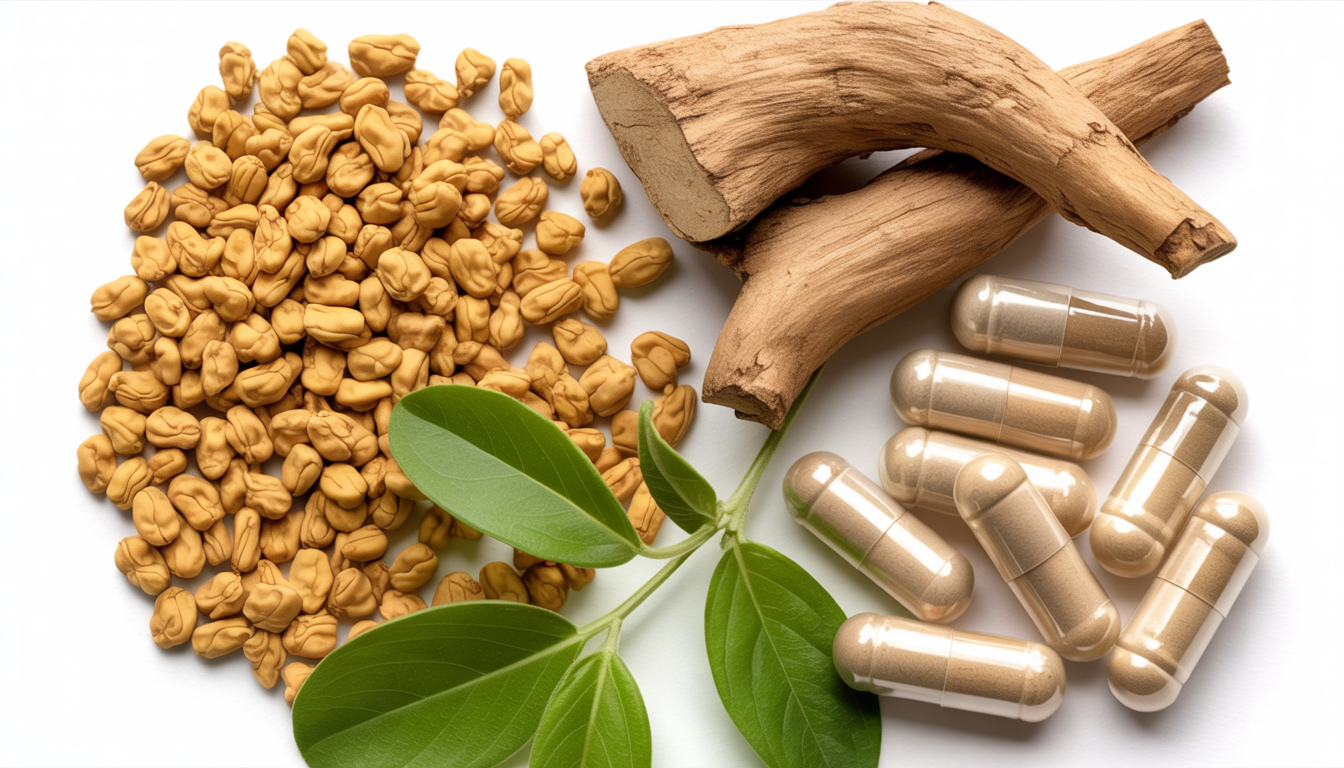


CHILL OUT WITH HOLIDAY STRESS BUSTER COCKTAIL
By Robert Schinetsky
The holiday season is in full swing, and while this is generally a time to spend time relaxing and rejoicing with family, friends, and loved ones, it’s also a time of immense stress for many individuals.
Buying gifts, bustling through busy checkout lines, sitting in traffic, and having to sit through yet another hour-long rant from crazy Uncle Eddie are enough to drive even the most even-keeled individual bonkers.
As if the holidays weren’t stressful enough, there is also the 2020 U.S. Presidential election, which has been one of the most divisive and contentious elections in history.
Survey data from the American Psychological Association indicates that more than two-thirds of U.S. adults (68%) say that the 2020 U.S. presidential election is a significant source of stress in their life.[1]
This is a significant increase from the 2016 presidential election (which at the time was also considered very divisive) when 52% of individuals surveyed said the election was a significant source of stress.
It should be noted that the above survey data indicates levels of stress before the election. You can only imagine how much stress levels have increased given the present state of turmoil in the post-election period.
This is all in addition to the massive amounts of stress individuals have been dealing with already this year with lockdowns, business closures, and financial uncertainty.
Nevermind the fact that these stressors, unique to the cataclysmic year that is 2020, are on top of normal stressors that individuals deal with year in and year out -- family, personal relationships, bills, work deadlines, traffic, etc.
Why is Stress Bad?
For starters, not all stress is bad. Some stress is necessary and even beneficial.
For instance, resistance training, as well as other forms of strenuous exercise, are stressful to the body and mind, but they are a good stress that forces the body to adapt, grow stronger, and become more resilient.
When stress goes “bad” is when it is chronic.
Sustained, underlying stress leads to chronically elevated levels of the body’s primary stress hormone, cortisol.
Prolonged elevations in cortisol are known to impair sleep, disrupt energy metabolism, reduce protein synthesis, and increase protein breakdown[2,3], none of which is helpful if your goal is to build muscle or lose body fat.
Body composition goals aside, chronic stress can also harm your hormonal and metabolic health as well.
Chronic stress and prolonged elevations of cortisol (the primary stress hormone) is also a known contributor to[3,4,5,6,7]:
- Metabolic syndrome
- Inflammation
- Coronary heart disease
- Insulin resistance
- Reduced endothelial function
- Increased appetite and food intake
- Poorer mood and feelings of well-being
- Decreased libido
- Impaired immune function
- Weight gain
- Osteoporosis
- Hormone imbalances
- GI complications
The list goes on and on and on…
Chronic stress can even affect levels of important hormones, including testosterone, which can have several unwanted downstream effects, including reduced motivation to exercise, decreased libido, and poorer mood and cognition.
This further contributes towards the downward spiral that is chronic stress since exercise has been shown to help reduce stress.[6]
Dealing with Post Election Stress
Suffice it to say that this year has been particularly stressful for many individuals, and to help alleviate that stress individuals are turning to all sorts of things, including alcohol, antidepressants, and marijuana.
In fact, back in May, the Wall Street Journal reported that prescriptions for anti-anxiety medications, such as Ativan, Valium and Klonopin, increased 10.2% in the U.S. to 9.7 million in March 2020 from 8.8 million in March 2019..[10]
A recent article by the New York Times also noted that increased usage of marijuana, particularly edibles, during the pandemic and election cycle.[11]
Additionally, alcohol delivery company, Drizly, reported that its sales increased between 33-75% on Election Day, depending on the state, with the larger spikes appearing in bigger cities like New York, Boston, and Washington D.C.[12]
Suffice it to say that relying on a steady course of alcohol and drugs to mitigate stress doesn’t bode well for health or longevity.
So, what can you do to beat the post-election blues (as well as the other stressors that abound this year?)
Exercise
Exercise does a body and mind good.
Moderate to intense physical activity is known to increase levels of feel-good neurotransmitters in the body, including dopamine, norepinephrine, and serotonin.
Research also shows that regular bouts of physical activity can improve the body’s ability to handle stress, lower cortisol levels, and reduce feelings of anxiety.[13,14,15]
Reduce News & Social Media Consumption
Keeping up to date on the latest happenings in your city, state, and country is beneficial...up to a point.
Being glued to the TV, laptop, or smartphone for hours on end, traversing all the news outlets and social media feeds only serves to increase stress, irritation, and feelings of despair.
As such, if you find that watching the news makes you feel more stressed or anxious (and, let’s be honest, the news overwhelmingly flaunts negative things because bad news gets more attention than good news), then stop watching entirely or severely restrict how much time you spend watching/listening to the news or social media.
As we said, staying up to date on current events can be beneficial, but not at the risk of your mental well-being.
Get Outdoors
Building off the previous two points, another way to help beat post-election stress is to simply get outdoors and spend some time in nature.
This accomplishes two goals:
- It increases your physical activity
- It forces you to get away from the news and (hopefully) your phone
Going for a walk, hike, or jog can do wonders to help you unplug from the world while also boosting levels of feel good neurotransmitters and happy hormones like dopamine and serotonin.
If you want to take your phone with you to listen to music while you walk or hike, that’s perfectly fine. But, try to not be glued to the screen while you’re out and about. Remember, the goal here is to get away from sources of stress and embrace the calming aspects of the great outdoors.
Laugh!
As strange or random as this might be, laughter is actually an effective (and enjoyable) way to reduce stress and anxiety.
In fact, laughter has been used as a complementary and alternative therapy since 1970![16]
Additional research has found that laughter has a positive effect on[17]:
- Anxiety
- Depression
- Rage
- Tension
- Pain relief
- Immune function
Laughter also increases oxygen intake prompting the release of endorphins by the brain.[18] Having a good, hearty laugh also helps endothelial function, which supports healthy blood pressure.[19]
So, instead of being fixated on the latest panic-inducing news story scrolling across the TV or social media feed, turn on one of your favorite comedies or feel good movies and have a laugh.
You’ll reduce stress, improve your mood, and boost your overall outlook!
Try Supplements
Reducing stress begins implementing meaningful changes to your daily habits (exercising, eating right, getting enough sleep, reducing social media consumption, etc.). Once these are in place, the application of the right supplements may further help reduce feelings of stress and anxiety while also promoting a brighter outlook and improved mood.
As you’re likely aware, there’s no shortage of products marketed to help reduce stress and anxiety, but the truth is that what you’ll find on the market is a mixed bag. Some are decent while others are underdosed, pixie-dusted cash grabs.
AML is dedicated to producing only premium-quality supplements containing well-researched ingredients at their proper dosages.
The end result of our toils, trials and tribulations is AML Calming Cocktail.
AML Calming Cocktail is a natural, non-habit forming supplement formulated to help reduce feelings of stress and anxiety. It is NOT a prescription medication or drug.
We’ve combed through thousands of studies and created a product that includes only the very best ingredients to help promote feelings of calm and relaxation.
Among the notable standouts including in AML Calming Cocktail are:
- GABA
- Taurine
- Ashwagandha
- 5-HTP
- L-Theanine
- Melatonin
We’ve delved deep into the science of AML Calming Cocktail previously in our tell-all article -- STRESSED OUT? AML CALMING COCKTAIL TO THE RESCUE! So, head there for a full rundown of the ins and outs of the top-tier stress-reduction supplement.
As an overview, the ingredients in AML Calming Cocktail include a synergistic blend of research backed compounds that helps manage stress and anxiety while promoting feelings of relaxation.
With the inclusion of melatonin, AML Cocktail also serves dual-purpose as a nighttime recovery and sleep aid. The importance of sleep regarding health, performance, and stress-mitigation can’t be emphasized heavily enough. Yet, many individuals struggle to get quality sleep each night for a myriad of reasons.
AML Calming Cocktail helps to naturally take the edge off, allowing you to unwind and cast aside the worries of the day so that you can achieve deep, restorative rest and relaxation.
Takeaway
Stress is something we face on a daily basis, some days are worse than others.
Frequently, individuals turn to drugs and alcohol to deal with stress, which have deleterious consequences on long-term health and longevity.
Instead of turning to those habit-forming substances, try incorporating some (or all) of the lifestyle changes discussed above.
And, if you’re looking for added help fending off feelings of post-election stress and anxiety, try AML Calming Cocktail.
It contains a hand-picked, synergistic mix of ingredients that help reduce feelings of stress and promote feelings of calm relaxation.
Click here to learn more about AML Calming Cocktail and how it can help manage feelings of stress.
© Published from Advanced Research Media, Inc. 2020
© Reprinted with permission from Advanced Research Media, Inc.
References
- 2020 presidential election a source of significant stress for more Americans than 2016 presidential race. (2020, October 7). https://www.apa.org. https://www.apa.org/news/press/releases/2020/10/election-stress
- Hall MH, Casement MD, Troxel WM, Matthews KA, Bromberger JT, Kravitz HM, Krafty RT, Buysse DJ. Chronic Stress is Prospectively Associated with Sleep in Midlife Women: The SWAN Sleep Study. Sleep. 2015 Oct 1;38(10):1645-54. doi: 10.5665/sleep.5066. PMID: 26039965; PMCID: PMC4576339.
- Chandola Tarani, Brunner Eric, Marmot Michael. Chronic stress at work and the metabolic syndrome: prospective study BMJ 2006; 332 :521
- Takase B, Akima T, Uehata A, Ohsuzu F, Kurita A. Effect of chronic stress and sleep deprivation on both flow-mediated dilation in the brachial artery and the intracellular magnesium level in humans. Clin Cardiol. 2004 Apr;27(4):223-7. doi: 10.1002/clc.4960270411. PMID: 15119699; PMCID: PMC6654639.
- Jens Juel Christiansen, Christian B. Djurhuus, Claus H. Gravholt, Per Iversen, Jens Sandahl Christiansen, Ole Schmitz, Jørgen Weeke, Jens Otto Lunde Jørgensen, Niels Møller, Effects of Cortisol on Carbohydrate, Lipid, and Protein Metabolism: Studies of Acute Cortisol Withdrawal in Adrenocortical Failure, The Journal of Clinical Endocrinology & Metabolism, Volume 92, Issue 9, 1 September 2007, Pages 3553–3559, https://doi.org/10.1210/jc.2007-0445
- Dhabhar FS. Effects of stress on immune function: the good, the bad, and the beautiful. Immunol Res. 2014 May;58(2-3):193-210. doi: 10.1007/s12026-014-8517-0. PMID: 24798553.
- Epel, et al. Stress may add bite to appetite in women: a laboratory study of stress-induced cortisol and eating behavior. Psychoneuroendocrinology. January 2001;26(1):37-49.
- Salleh MR. Life event, stress and illness. Malays J Med Sci. 2008;15(4):9-18.
- Epel, E. E., Moyer, A. E., Martin, C. D., Macary, S. , Cummings, N. , Rodin, J. and Rebuffe‐Scrive, M. (1999), Stress‐Induced Cortisol, Mood, and Fat Distribution in Men. Obesity Research, 7: 9-15. doi:1002/j.1550-8528.1999.tb00385.x
- Petersen, A. (2020, May 25). More people are taking drugs for anxiety and insomnia, and doctors are worried. WSJ. https://www.wsj.com/articles/more-people-are-taking-drugs-for-anxiety-and-insomnia-and-doctors-are-worried-11590411600
- The election’s over, but not the stress. Any edibles left? (2020, November 12). The New York Times - Breaking News, US News, World News and Videos. https://www.nytimes.com/2020/11/11/technology/election-anxiety-cannabis-edibles.html
- Alcohol delivery company Drizly sees sales Jump amid election wait. (2020, November 6). NPR.org. https://www.npr.org/2020/11/06/932097030/alcohol-helps-americans-survive-a-long-election-night
- Mastorakos G , et al. "Exercise and the Stress System. - PubMed - NCBI." National Center for Biotechnology Information, ncbi.nlm.nih.gov/pubmed/16613809.
- Hill EE , et al. "Exercise and Circulating Cortisol Levels: the Intensity Threshold Effect. - PubMed - NCBI." National Center for Biotechnology Information, ncbi.nlm.nih.gov/pubmed/18787373.
- Childs E, de Wit H. Regular exercise is associated with emotional resilience to acute stress in healthy adults. Front Physiol. 2014;5:161. Published 2014 May 1. doi:10.3389/fphys.2014.00161
- Cousins, “Anatomy of an illness (as perceived by the patient),” The New England Journal of Medicine, vol. 295, no. 26, pp. 1458–1463, 1976.
- Kim, S. H., Kim, Y. H., & Kim, H. J. (2015). Laughter and stress relief in cancer patients: A pilot study. Evidence-Based Complementary and Alternative Medicine, 2015, 1-6. https://doi.org/10.1155/2015/864739
- Manninen, S., Tuominen, L., Dunbar, R. I., Karjalainen, T., Hirvonen, J., Arponen, E., Hari, R., Jääskeläinen, I. P., Sams, M., & Nummenmaa, L. (2017). Social Laughter Triggers Endogenous Opioid Release in Humans. The Journal of Neuroscience, 37(25), 6125 LP – https://doi.org/10.1523/JNEUROSCI.0688-16.2017
- University Of Maryland Medical Center. "University Of Maryland School Of Medicine Study Shows Laughter Helps Blood Vessels Function Better." ScienceDaily. ScienceDaily, 19 March 2005. <www.sciencedaily.com/releases/2005/03/050309111444.htm>.





